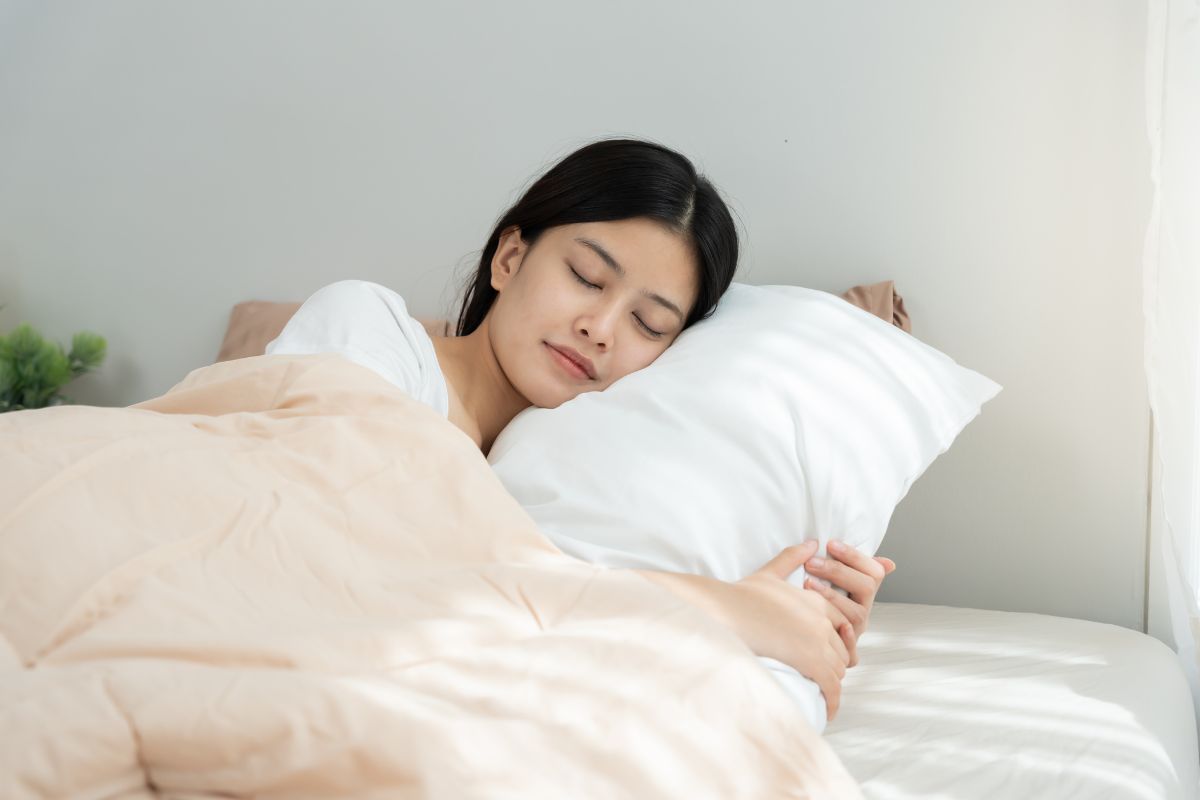How to Improve Sleep for Mental Wellness

Quality sleep is foundational to mental health. People who sleep poorly are much more likely to experience anxiety, depression, and chronic stress. For example, a CDC study found adults who averaged 6 hours or less of sleep had over twice the odds of frequent mental distress compared to those who slept more. Conversely, a National Sleep Foundation survey showed that over 90% of adults with very good sleep reported no significant depressive symptoms. In other words, good sleep is strongly linked to better mood and resilience, while insomnia or fragmented sleep can worsen emotional health. As Stanford experts note, sleep and mood have a bidirectional relationship – poor sleep can trigger low mood, and anxiety or depression can in turn disrupt sleep. Recognizing this connection is the first step toward improving both sleep and overall mental wellness.
Common Sleep Problems Affecting Mental Well-being
-
Insomnia. Chronic difficulty falling or staying asleep is very common (10–30% of adults). Insomnia dramatically raises the risk of mental health issues. Stanford Medicine reports people with insomnia are about 10 times more likely to have depression and 17 times more likely to have anxiety than those without insomnia. Persistent insomnia leads to daytime fatigue, irritability, poor concentration and a vicious cycle of stress and worry about sleep.
-
Sleep Apnea. Obstructive sleep apnea (breathing interruptions during sleep) also harms mood. It often causes fragmented sleep and low oxygen levels, and is linked to roughly a threefold increase in depression and anxiety risk. Common in older or overweight people, untreated apnea can worsen fatigue and cognitive problems, compounding mental health burdens.
-
Circadian Rhythm Disruption. Irregular schedules (due to shift work, jet lag, or staying up very late) can throw off the body’s clock and mood. For instance, a large UK study found that people who went to bed very late had higher rates of depression and anxiety, even if that schedule matched their natural chronotype. Maintaining a consistent daily schedule (even on weekends) helps stabilize your internal clock and mood.
-
Other factors. Frequent awakenings from pain, restless legs syndrome, or lifestyle stress (e.g. excessive caffeine or alcohol use) can also fragment sleep, leading to mood swings and worsening stress. In general, any condition that chronically reduces sleep time or quality will tend to have a negative impact on mental well-being.
Lifestyle Changes and Sleep Hygiene
Small lifestyle adjustments can greatly improve sleep quality. Experts emphasize establishing a regular sleep routine and a bedroom environment that promotes uninterrupted rest. Consider the following evidence-based practices:
-
Keep a consistent schedule. Go to bed and wake up at the same times every day (including weekends). Most adults need about 7–9 hours of sleep. Consistency strengthens your circadian rhythm, making it easier to fall asleep and wake up naturally.
-
Create a sleep-friendly bedroom. Make your bedroom quiet, dark, and cool (around 65–68°F is optimal). Reduce noise (heavy curtains, white-noise machines) and light (blackout shades or eye masks). Reserve the bed for sleep and intimacy only – avoid watching TV, working, or smartphone use in bed. A comfortable mattress and pillows also prevent discomfort that can wake you.
-
Establish a relaxing bedtime routine. Wind down at least an hour before bed. Dimming household lights and turning off electronic screens (TVs, phones, tablets) helps signal your brain that night is approaching. Engage in calm activities like reading a book, taking a warm bath, or doing gentle stretches or breathing exercises. Techniques such as progressive muscle relaxation or mindfulness meditation can ease pre-sleep anxiety. These kinds of bedtime rituals make falling asleep easier and more reliable.
-
Watch what you consume. Avoid large meals, caffeine, alcohol, and nicotine in the evening. Caffeine (coffee, tea, energy drinks) can stay in your system for hours; it’s best to skip it after lunchtime. Alcohol and heavy meals might make you drowsy initially but will fragment sleep later (alcohol also suppresses REM sleep important for mood). Instead, have a light snack if you’re hungry and finish eating at least 2–3 hours before bedtime.
-
Exercise regularly. Daily moderate physical activity is one of the most effective ways to boost sleep quality. Johns Hopkins Medicine notes that “we have solid evidence that exercise does, in fact, help you fall asleep more quickly and improves sleep quality”. Even a 30-minute brisk walk or bike ride can make a difference that night. (Just be mindful: some people find vigorous exercise right before bed is too stimulating, so schedule workouts at least 1–2 hours before bedtime if that is an issue.)
-
Limit naps. Short daytime naps (20–30 minutes) can be refreshing, but long or late naps can make it harder to sleep at night. Sleep experts recommend keeping naps brief and not napping after mid-afternoon.
Implementing these habits (“sleep hygiene”) sets the stage for restorative sleep. These changes may seem simple, but consistency is key. Over time, a sleep-friendly routine will become automatic and significantly improve your sleep and mood.
Cognitive-Behavioral Therapy and Relaxation Techniques
If poor sleep persists despite good habits, consider structured therapies and relaxation methods:
-
Cognitive Behavioral Therapy for Insomnia (CBT-I). This is a first-line, evidence-based treatment for chronic insomnia. Multiple reviews show CBT-I works as well as sleeping pills in the short term and is more effective than medication in the long run. CBT-I involves education about sleep, behavioral techniques (like sleep restriction and stimulus control), and cognitive restructuring to challenge negative sleep thoughts. It also covers sleep hygiene. For example, patients learn not to stay in bed awake and anxious: if sleep doesn’t come within about 20 minutes, get up and do a relaxing activity elsewhere until feeling sleepy. Over weeks of therapy, these strategies train the brain and body to re-associate bed with sleep.
-
Relaxation and stress reduction. Calming the mind before bedtime can hasten sleep and improve its quality. Techniques such as deep breathing, guided imagery, meditation, and progressive muscle relaxation are helpful. In fact, relaxation exercises are one of the core components of CBT-I. Simple practices like taking slow, deep breaths or tensing/releasing muscle groups can reduce the physical tension and anxiety that keep you awake. Mindfulness meditation or bedtime yoga can also quiet racing thoughts. Regular use of these techniques can lower overall stress levels and make it easier to fall asleep.
-
Melatonin and other supplements. Melatonin is a hormone that regulates the sleep-wake cycle. As a supplement, it may slightly reduce the time it takes to fall asleep in people with insomnia or jet lag. The Mayo Clinic notes melatonin can be useful for shifting sleep timing or promoting sleep in the short term, and it is generally safe for limited use. However, its effect on sleep quality and total sleep time is modest, and results vary by individual. If you try melatonin, start with a low dose (0.5–3 mg) about an hour before bedtime. Always use it under a doctor’s supervision, since it can interact with medications and isn’t suitable for everyone. (Other over-the-counter aids like valerian or magnesium lack strong evidence and should be used cautiously.)
-
Professional help. If sleep problems and mood issues remain severe or chronic, consult a healthcare provider. A sleep specialist or therapist trained in CBT-I can create a personalized plan. In some cases, treating underlying conditions (e.g. sleep apnea or depression) with medical therapies is needed. Don’t hesitate to seek help – improving sleep is a legitimate and vital part of mental health care.
Conclusion
Improving sleep is a powerful way to enhance mental wellness. By adopting healthy habits – regular schedules, a restful bedroom environment, and a calming bedtime routine – most people can see marked gains in sleep quality. Combining these lifestyle changes with relaxation techniques and, if needed, professional therapies (like CBT-I or short-term melatonin) provides a comprehensive approach. Over time, better sleep pays off with better mood, sharper thinking, and greater emotional resilience. If sleep issues persist despite these strategies, consider talking with a health professional for further evaluation and support.






